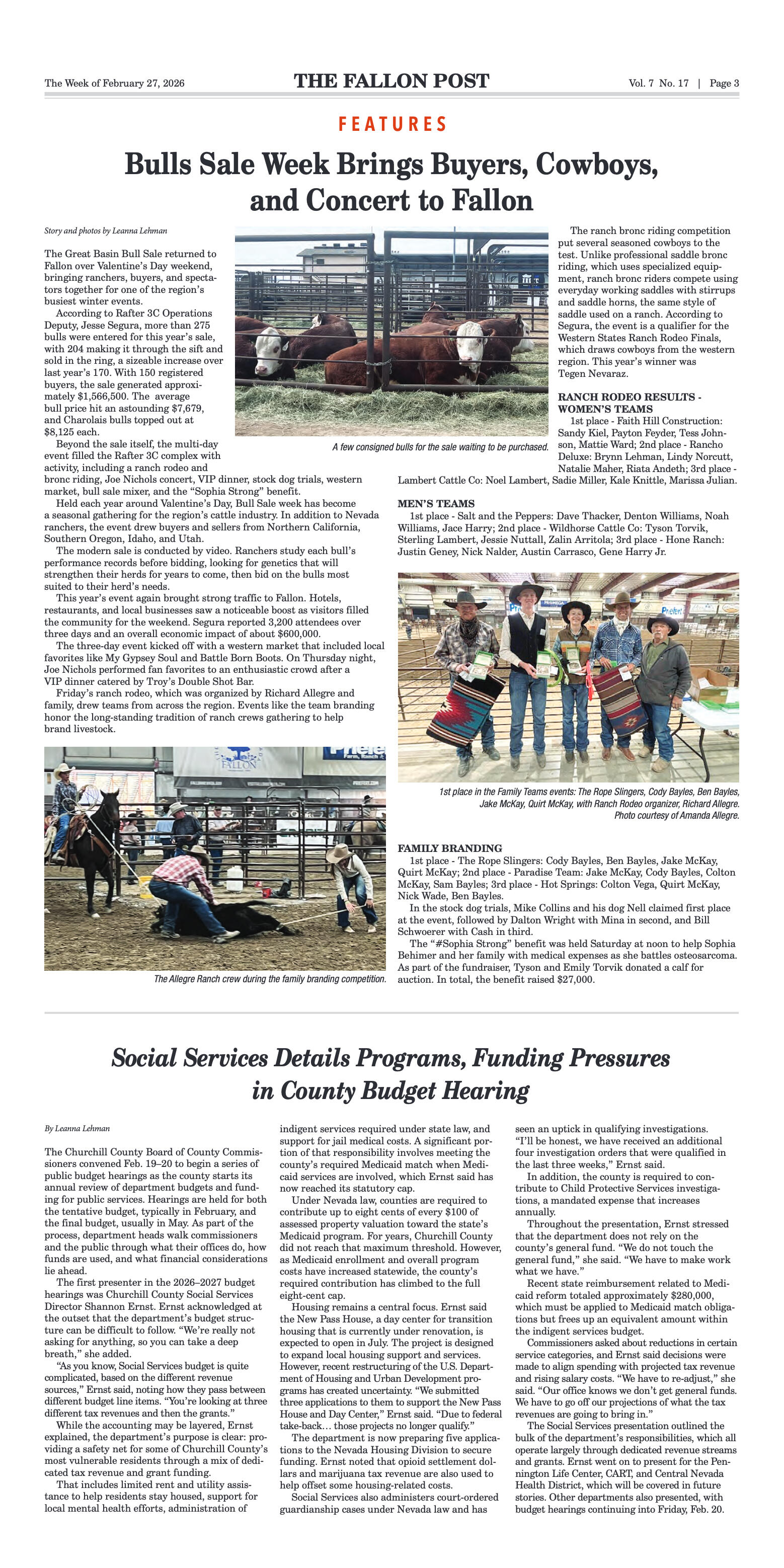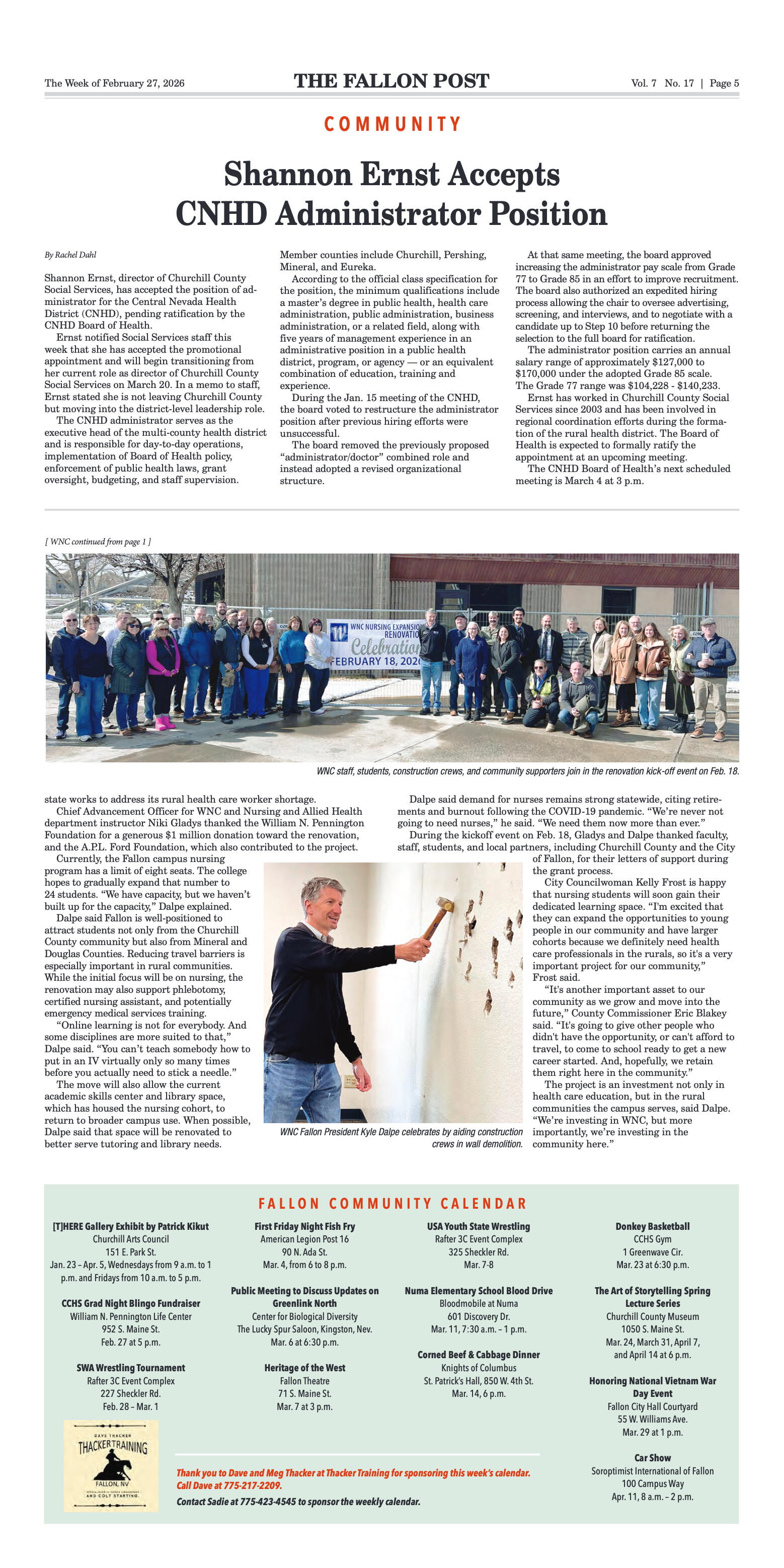Last week, I wrote about Asa Kenyon, thought to be the Lahontan Valley’s first non-Native American settler. He arrived here from California in 1854, a mere 8 years after the failed Donner Party mission (1846).
The fate of the Donner Party provides just one example of the many challenges faced by those early pioneers who settled in this Valley. Yet, settle they did, and most of them found at least a small measure of prosperity.
We can learn their names and the names of their wives and children from census data, and we can discover how much property they ranched or farmed from other records, but we have to fill in, by imagination, most of the details about their daily lives unless correspondence, diaries, or newspaper accounts form part of the record. In the case of early Churchill County settlers, John Brown and his wife, Delia Thompson Brown, we have both an early historical written description of their holdings and a diary left behind by Delia, which records some of the domestic details of her life here.
Thompson and West, in their classic “History of Nevada,” 1881, write that John and Delia Brown arrived in Lahontan Valley in 1866. Brown was the owner of “a fine farm containing 660 acres of land, located on Old River, six miles below the old overland bridge and twelve miles from the county seat” with “160 acres under cultivation and a young orchard of promising fruit trees.” Thompson and West further inform us that “Brown had begun to venture into stock-raising” and “may be considered very successful in the business.” He also served as Justice of the Peace of Stillwater Township and Sheriff of Churchill County.
The first impression arising from the Thompson and West entry is that John Brown exemplified the portrait (even if somewhat romanticized) of the male pioneer: energetic, adventurous, and ambitious. In contrast, the entries in Delia Brown’s diary suggest that what fed John’s pioneer spirit starved her own.
John, while raising stock, cultivating a farm and orchard, and serving as Justice of the Peace and Sheriff, was constantly on the move and in the company of like-minded men. Delia, while raising a son and daughter on an isolated ranch and performing endless chores, was largely without any company except for her own and her children’s.
July 26, 1868: My husband has gone from home today to look for some horses and it is very lonely when he is gone.
Oct. 31, 1881: John gone to Mr. Allen’s.
Nov 1, 1881: John gone to Mr. Prichard’s.
Nov. 2, 1881: John gone to Stillwater.
Nov. 4, 1881: John gone to Upper Sink again.
Oct. 29, 1882: Alone again today. Wonder if any other woman stays alone so much.
To add to the loneliness caused by John’s frequent absences, she felt intense longing for the family she had left behind in Huntley, Michigan.
May 6, 1868: Eight years ago tonight was the last night I spent with loved ones in my far away home before starting on the trip “across the plains.” My heart is sad tonight when I think of the changes since then. Oh how many loved ones are buried from sight and their places vacant! My mother, sister, niece and others and here I am far away from all. My heart grieves for the presence of them tonight. I would not murmur at the dealing of God for He doeth all things well and yet my heart is very sad.
Thirteen years later, her heart is still very sad:
May 7, 1881: Twenty-one years today since we bade a fond farewell to dear ones and started on our trip “across the plains.” I will not dwell on the event. Suffice it to say that I so long for the sight of the faces of the few absent ones left.
Next week, I’ll bring you more of Delia Brown’s diary.
Please send your stories and ideas for stories to [email protected].












































Comment
Comments